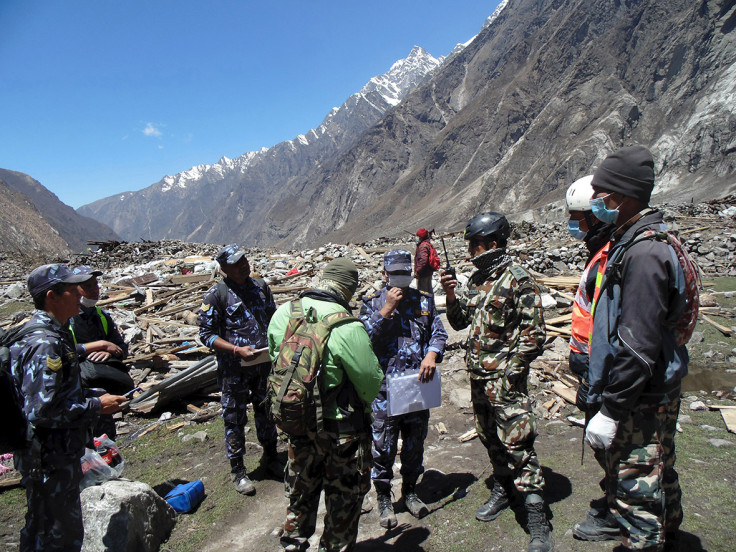Nepal earthquake: Missing British backpacker confirmed dead

A missing British backpacker has been confirmed dead following the earthquake in Nepal, the Foreign Office reports.
Matthew Carapiet, 23, was trekking through Nepal's Langtang Valley when the earthquake struck on 25 April. The architecture student from Bearsted in Kent was travelling during his gap year.
In a statement released through the Foreign Office his family paid an emotional tribute to the student who "made a huge impression on the lives of everyone he met".
The statement read: "Matt was touring Asia in a gap year before planning to continue his architecture studies in the autumn. He spoke to us regularly about how much he was enjoying his travels and we know he was doing something that he loved. He had been trekking in Nepal for two weeks before the earthquake.
Matt was touring Asia in a gap year before planning to continue his architecture studies in the autumn. He spoke to us regularly about how much he was enjoying his travels and we know he was doing something that he loved.
"Matt is loved by his family and friends who all have countless memories of how kind, happy and caring he was. He made a huge impression on the lives of everyone he met. This has been a very difficult time for the whole family, and we now need time to grieve. We would ask for privacy as we come to terms with our loss."
The 7.8-magnitude quake, which triggered avalanches and mudslides, reduced whole villages to rubble, leaving more than 8,000 people dead.
Mr Carapiet's last known location was near Langtang village, a popular trekking destination. More than 13,000 foreign hikers visit the area annually. Reports say the village was home to 435 people and 55 hotels and guest houses, but just one house was left following the earthquake. Emergency workers have recovered more than 100 bodies – including at least nine foreigners – who were killed by a mudslide that buried the village.
The confirmation of Mr Carapiet's death came as the Government revealed that almost 100 more British Army Gurkhas have arrived in Nepal to help with the relief effort.
The 92 Gurkhas from 36 Engineer Regiment, based in Maidstone, Kent, arrived in two groups on Friday and Saturday. Their focus will be on providing support to the villages of serving and veteran Gurkhas and their families, the Ministry of Defence said. They are expected to stay for about three months.
A separate team of Gurkha engineers has already been deployed to set up a water purification system in Kathmandu. Around 300 British military personnel have also been sent to the region.
Defence Secretary Michael Fallon said: "The British Army Gurkhas deploying have a unique set of local knowledge, language skills and engineering experience, making them a vital element of the international response.
"We recognise that this terrible disaster will have directly affected our own Gurkha community and our thoughts are with them at this difficult time."

The UK government's humanitarian response now stands at £23m, which includes a pledge to match the first £5m raised by the public for the DEC appeal.
DEC chief executive Saleh Saeed said: "The overwhelming generosity of the UK public will help families get through the next few months and rebuild their lives over the coming years.
"Our members' teams have been are working around the clock to provide essential aid. However, a huge amount of work remains to be done before the monsoon rains make the response even more difficult and the risk of disease outbreaks increase."
The Department for International Development has flown out 54 tonnes of humanitarian aid supplies, including more than 1,100 shelter kits and some 1,700 solar lanterns, while the RAF has been transporting supplies and equipment from India to Kathmandu.
According to UN estimates over a quarter of Nepal's 28 million population has been affected by the deadly earthquake, with aftershocks continuing to add to the damage.
© Copyright IBTimes 2025. All rights reserved.






















